OPINION: Going vegan isn’t enough
The climate crisis cannot be solved by individual actions. In order to save the planet, systemic change needs to occur.
Protesters march in the Chicago climate strike in Grant Park on Sept. 20.
In 2015, Greenpeace estimated that we had until 2020 before the planet reached the point of no return on climate change – not an apocalypse, but a point beyond which consequences would be unavoidable and irreversible.
According to the opening press release for the UN 2019 Climate Action Summit, “The world would need to increase its efforts between three- and five-fold to contain climate change to the levels dictated by science – a 1.5°C rise at most – and avoid escalating climate damage already taking place around the world.” That unavoidable, irreversible date is now only a few months away. So what can we do?
According to an article from the BBC, up to one-third of greenhouse gas emissions come from the food production industry. If the world became vegan, that amount would fall by about 70 percent.
Mark Potosnak, associate professor and chair of the environmental science department at DePaul, said that much of this greenhouse gas comes from over-fertilization.
“The nitrogen in the soil, there’s so much of it, yeah some of it goes into the plants, but some actually goes back out into the atmosphere and is a greenhouse gas called nitrous oxide,” Potosnak said. “A lot of the corn and soy, we don’t actually consume directly, we grow them and then they’re consumed by cattle, chickens, pigs and then we eat the cattle, chickens, pigs.”
So, there appears to be a simple solution: If you want to help the environment, go vegan. If we stop consuming animal products, corporations that produce those products would go out of business, and the energy from plants we eat would be used more efficiently. However, it’s not that simple; the hypothetical world where everyone goes vegan just can’t happen.
Being able to make your diet sustainable is a privilege. Frankly, it’s expensive and labor-intensive to maintain a vegan diet. I can get a cheeseburger meal from McDonald’s, over 1,000 calories, for $6. However, at a nearby vegetarian and vegan restaurant, Native Foods Cafe, the cheapest meal costs $10, and has a lot less calories.
Low-income households are already at a disadvantage when it comes to eating healthy, let alone eating sustainably. Being poor is expensive, and not having the money to make strategic purchases limits your ability to make better choices for the long run.
You need to be lucky in a lot of ways to sustain a vegan diet. You need to be able to afford it, have the time to plan it and live in an area that allows access to a variety of foods. If you have an allergy like nuts or soy, many vegan and vegetarian foods aren’t edible. If meat holds great significance in your culture, you would have to give that up.
According to sophomore Tommy Virgl, the stigma and inaccessibility surrounding the diet are barriers to maintaining veganism. Virgl was briefly vegan a few years ago, but was unable to continue after the effort became unrealistic.
“Every restaurant has a vegetarian option, but it’s rare that there’s a select vegan option, so it would kind of make me uncomfortable in social settings,” Virgl said. “My family was not supportive of [veganism] at all, so whenever I was with them they would make me meat and stuff … and I was like, ‘Well, I have nothing to eat now.’”
This isn’t to say that going vegan doesn’t work; if we don’t become vegan globally, but still have more people do so, we will still reap some benefits, such as decreased demand for meat products and a more health-conscious ideology. But, in the same way we can’t expect everyone to install solar panels on their roofs, we can’t move forward saying that, if only more people were vegan, we would be saved. Like everything, veganism has its downsides.
“I don’t think it’s good to make all these vegan products that are coming from all parts of the world and say that that’s better than chicken that’s grown right outside your door,” said Rachel Elfant, climate justice organizer and administrator for the activist group Chicago Area Peace Action.
According to Elfant, there’s a lot more we need to consider in discussing our climate crisis.
“We need to be talking about the system in which we live in,” Elfant said. “I think we’re stuck in a one dimensional thought process of economics…and we’re not thinking in terms of pollution, in terms of the environmental expenses, the social expenses. System change, not climate change.”
The only way to make that system change in today’s landscape is to engage on a political level. Fight for regulation on corporations, fight for energy research, for economic equality, fight to give more people the ability to make change.
“There’s personal steps, they can only go so far,” Potosnak said. “We need that commitment at the government level, but the government level of commitment won’t happen if we’re only taking these personal steps. It’s a hand-in-hand thing.”
As much as we like to think that one person can change the world, our strength is in numbers. We can’t keep putting the responsibility on others as an excuse to not do more ourselves.
Being able to make change in your own life is a privilege few have, and we need to use that privilege to change more lives than our own.


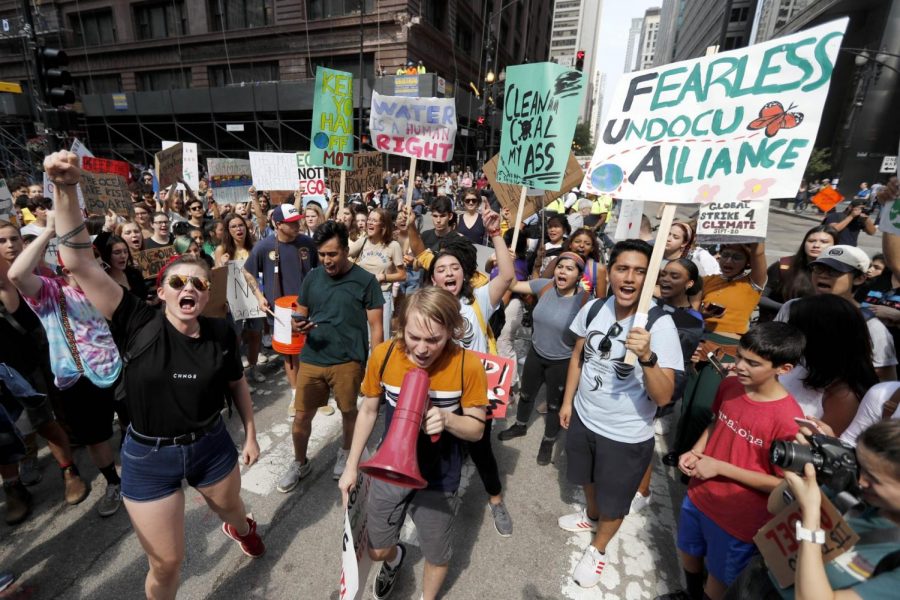
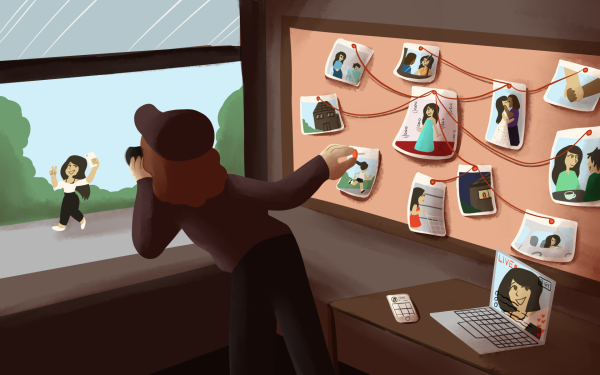

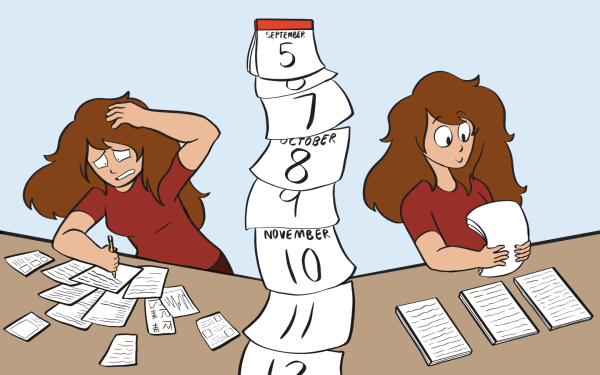
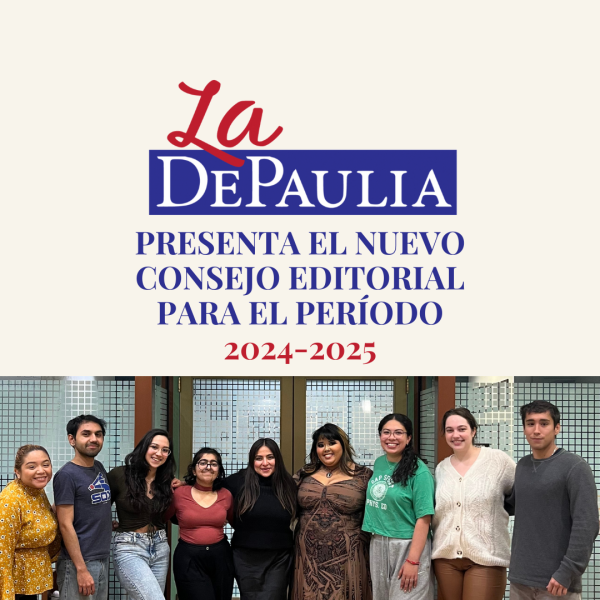
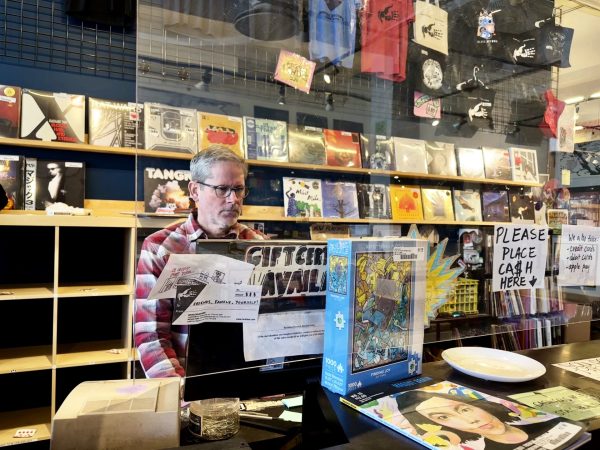
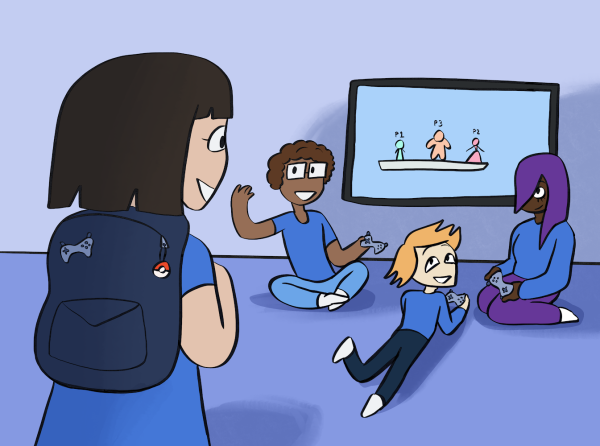
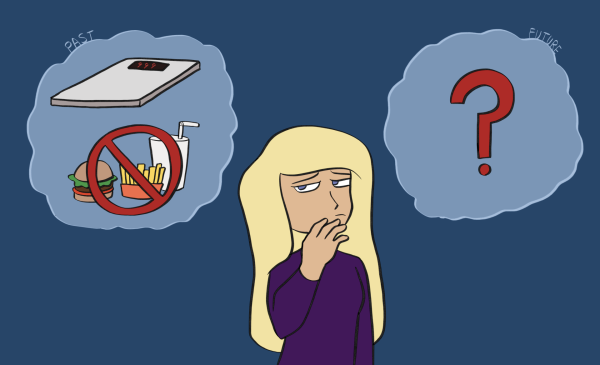
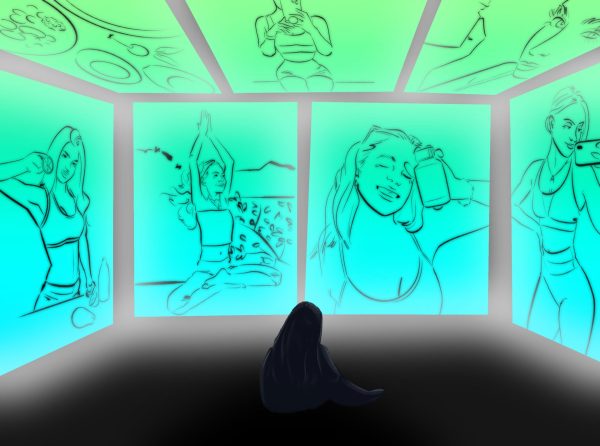


david wishengrad • Sep 30, 2019 at 9:37 am
2 corrections:
They are instilling identity disorder in the very people TASKED with cleaning this bloody mess up.
It’s a flat out lie told under the guise of the vegan flag and a tragic abuse of power THAT is actually, very typical of human behavior.
david wishengrad • Sep 30, 2019 at 9:23 am
Dear Cassidy Delahunty,
Thank you for doing such a nice job calling out the fact it is going to take much more. As the person who has spoken -with- more people about not needlessly eating and harming the animals than anyone currently alive on Earth, I though it would be a good idea to chime in.
We already have the solution. It has been solved. It is now just a matter of it being shared, understood, and accepted.
Being as all life of the planet is on the line, let’s get to it:
???? ?? ???? ????????? ?? ???? ?? ??? ???? ????????? ????? ?? ????
What does that say and what does that mean? It is true and it is always true, but it needs to be explained and understood to each of our own needs.
First of all, all other truths depend on life being true for them to be true themselves. We cannot point to another truth without first conceding we are truthfully alive to substantiate that other truth..
It says all life is Most Important. So, that’s right, even a microbe somewhere is actually Most Important.
When something is Most Important it must be handled as such. That means we must take into account that life’s ability to suffer, desire, potential, intelligence, what is in the best interest of life in general, our own honest need and anything else that may concern life before taking life.
We need only look up at the moon to see we must get to the stars or all life here will be lost forever. The chance of another life on this planet evolving to the point we are currently at (making rocket ships) before the complete loss of all the planet’s life is actually very unlikely. We, as people, must take life to survive in order to do more for life. That does not make the life that we do need to take is less than most important. If we really need to take it than it is indeed most important.
People talk everywhere about different causes that are all suppose to be rooted in the truthful importance of life itself. However, when I ask those people speaking up if they agree, “Life is Most Important in Life”, is true, always true, and why, they frequently try to argue it, in complete and total contradiction to the original point of their cause..
This truth tells us who we are and why. When people have heard it and understand it deep enough we can turn all of this around. We could have already turned it around on a dime, but many people decided they would rather call people names, “vegan”, “meat eater” etc, which are all lying labels that falsely define others as something less than Most Important, to fluff their egos. Yes, those people speaking up for the vegan cause that call people “vegans” have done far more harm to prospects of turning it all around than all of the the people piling up needlessly killed dead animals in the shopping carts put together. I told them. Many to most refuse to listen. They are instilling identity disorder in the very people talks with cleaning this bloody mess up. The is no such thing as a person being vegan. People are not their actions. It’s a flat out lie told under the guise of the vegan flag and a tragic abuse of power is is actually, very typical of human behavior.
We can ask each and every person seeking an office to represent life if they agree to this truth and why and never vote for anyone that opposes it in the slightest way. That would weed out a considerable amount of people that do not possess the first basic prerequisite to represent life at a job. If you were to think about how you could help the truth of these words, “Life is Most Important in Life” spread, the result would always be most important. Being as you are most important, working for a truth that is also most important, it must always yield most important results. See for yourself. Try it.
Presenting this truth to anyone, anywhere, forces that person to make a choice. It is the most profound thing to ever say to another human being and should be done with care and love, as it will profoundly affect them for the rest of their lives whether they like it or not, more than anything they have ever heard, because they were forced to choose.
The upside is that when a person chooses to accept this truth because they understand it is true and always true, they are choosing the truth of the importance of life and the very truth all other truths depend on to be true themselves. As such, because they have chosen the most important truth they can live their lives to their “true” limitless potential.
The flip-side is that the people who choose to reject this truth as always true for life, have chosen willful ignorance of the truth of the importance of life and in doing so rejected the truth of their own importance and now cannot live their lives to their true limitless potential because the highest truth itself that we have was chosen to be rejected. Nothing can possibly be true that attempt to contradict Life is Most Important in Life. Any attempt to do so is an unsubstantiated opinion (stated in contradiction because they used life itself to argue life was not most important) up against clearly proven truth.
The root of veganism is the truth of the importance of life.
The root of the truth of the importance of life is “Life is Most Important in Life”.
As such, ‘avoiding needless violence against all animals where reasonable and practicable’ is actually REQUIRED or a person has chosen willful ignorance of the truth of the importance of life and had made the choice to throw away and waste their own life by throwing away their own life’s “true” potential.
This truth needs to be explained and understood and shared by many. Anything less and all life here will be lost.
“Life is Most important in Life” is the ONLY cure for all needless and preventable suffering and death.
It requires everyone’s participation to move it forward.
The only real hope is the truthful hope. We can’t have truthful hope without the truth, can we now?
Take care,
David